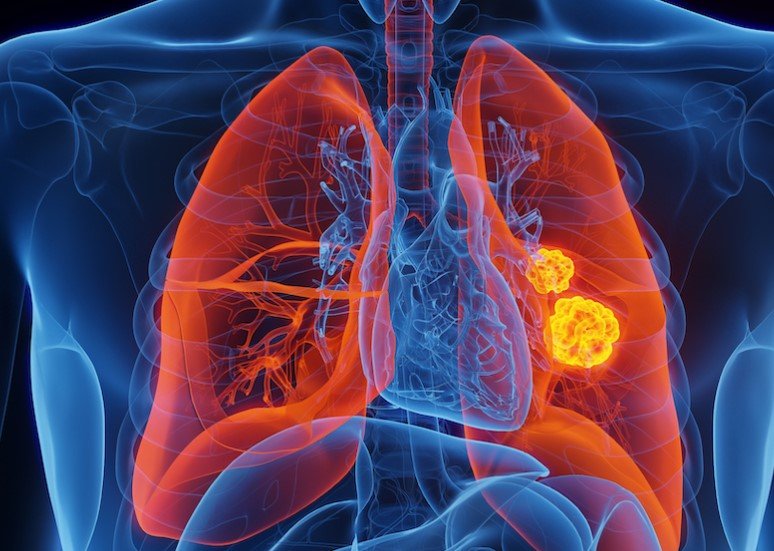A groundbreaking first-in-human trial of the antibody drug SHR-4849 has shown strong promise in treating relapsed small cell lung cancer, with response rates reaching up to 77 percent in some patients. Researchers in China presented these results at the 2025 World Conference on Lung Cancer in Barcelona, offering new hope for a disease that affects millions worldwide and has few effective options after initial treatments fail.
What the Trial Revealed
The Phase 1 study focused on SHR-4849, also known as IDE849, which targets a protein called DLL3 common in small cell lung cancer cells. This antibody-drug conjugate delivers a toxin directly to cancer cells while sparing healthy ones.
Experts tested the drug on 54 patients with relapsed small cell lung cancer across different dose levels. The trial aimed to check safety and early signs of effectiveness. Results showed that the drug shrank tumors in many cases, with an overall response rate of 59.5 percent among evaluated patients.
In a group with longer follow-up, the response rate climbed to 69.2 percent. At the key dose of 2.4 mg per kg, it hit 77.8 percent. These numbers suggest the drug could fill a big gap in treatments for this aggressive cancer type.
Small cell lung cancer makes up about 10 to 15 percent of all lung cancer cases globally. In 2022, over 2.4 million people received a lung cancer diagnosis, according to global health data. This form spreads quickly and often returns after standard chemotherapy.

Key Results and Patient Outcomes
The study reported a disease control rate of 90.5 percent, meaning most patients saw their cancer stabilize or shrink. Median progression-free survival reached 6.7 months overall, a positive sign for a cancer that progresses fast.
Here are some standout findings from the trial:
- Objective response rate: 59.5 percent across 42 evaluable patients.
- Confirmed responses in patients with brain metastases: 83.3 percent at the 2.4 mg/kg dose.
- Higher response in second-line treatment: 77.1 percent for those who had one prior therapy.
Patients received doses from 0.8 to 4.2 mg per kg. No severe toxicities forced anyone to stop treatment, and exposure to the drug’s toxin stayed low in the blood.
This builds on recent advances in lung cancer care. For example, other trials in 2025 have explored similar targeted therapies, like ifinatamab deruxtecan, which showed a 48 percent response in extensive-stage small cell lung cancer.
Safety Profile of SHR-4849
Safety remained a strong point in the trial. Common side effects included low white blood cell counts, anemia, and nausea, but these were manageable with standard care.
No deaths or treatment stops happened due to side effects. Researchers noted no dose-limiting issues below the highest tested level.
This profile compares well to other antibody-drug conjugates in development. In contrast, some older chemotherapies for small cell lung cancer cause harsher effects, leading to high dropout rates.
Ongoing dose expansion will help pick the best amount for Phase 2 studies. The team plans to test it in more patients with DLL3-positive tumors.
Broader Impact on Lung Cancer Treatment
Small cell lung cancer has seen limited progress until now, with survival rates often under a year for relapsed cases. SHR-4849 could change that by offering a targeted approach.
Global experts at the conference praised the results as a step forward. One presentation highlighted how this drug fits into a wave of innovations, including immunotherapies and ADCs that have improved outcomes in non-small cell lung cancer over the past five years.
| Metric | Value | Notes |
|---|---|---|
| Overall Response Rate | 59.5% | Among 42 evaluable patients |
| Disease Control Rate | 90.5% | Includes stable disease and responses |
| Median PFS | 6.7 months | Across all evaluated groups |
| Response in Brain Mets | 83.3% | At 2.4 mg/kg dose |
These developments tie into 2025 trends, where precision medicine has gained ground. For instance, new approvals for drugs targeting specific mutations have boosted survival in other cancers.
Looking Ahead for Patients and Research
The trial’s success paves the way for larger studies. Researchers aim to confirm these results in Phase 2 and explore combinations with other treatments.
Patients with relapsed small cell lung cancer now have reason for optimism. As one expert noted, this could lead to better options beyond chemotherapy, which often loses effectiveness over time.
Share this article with friends or family affected by lung cancer, and drop a comment below on your thoughts about these advances. Your input helps spread awareness and support ongoing research.
